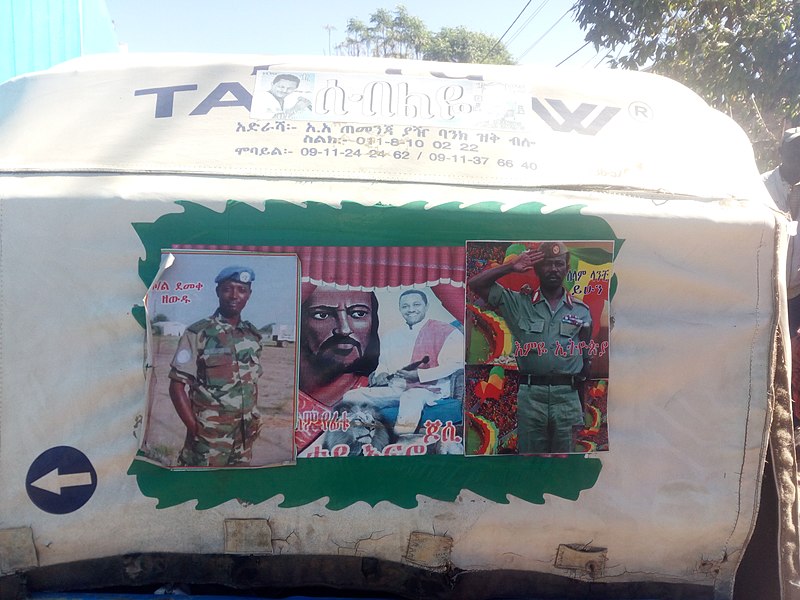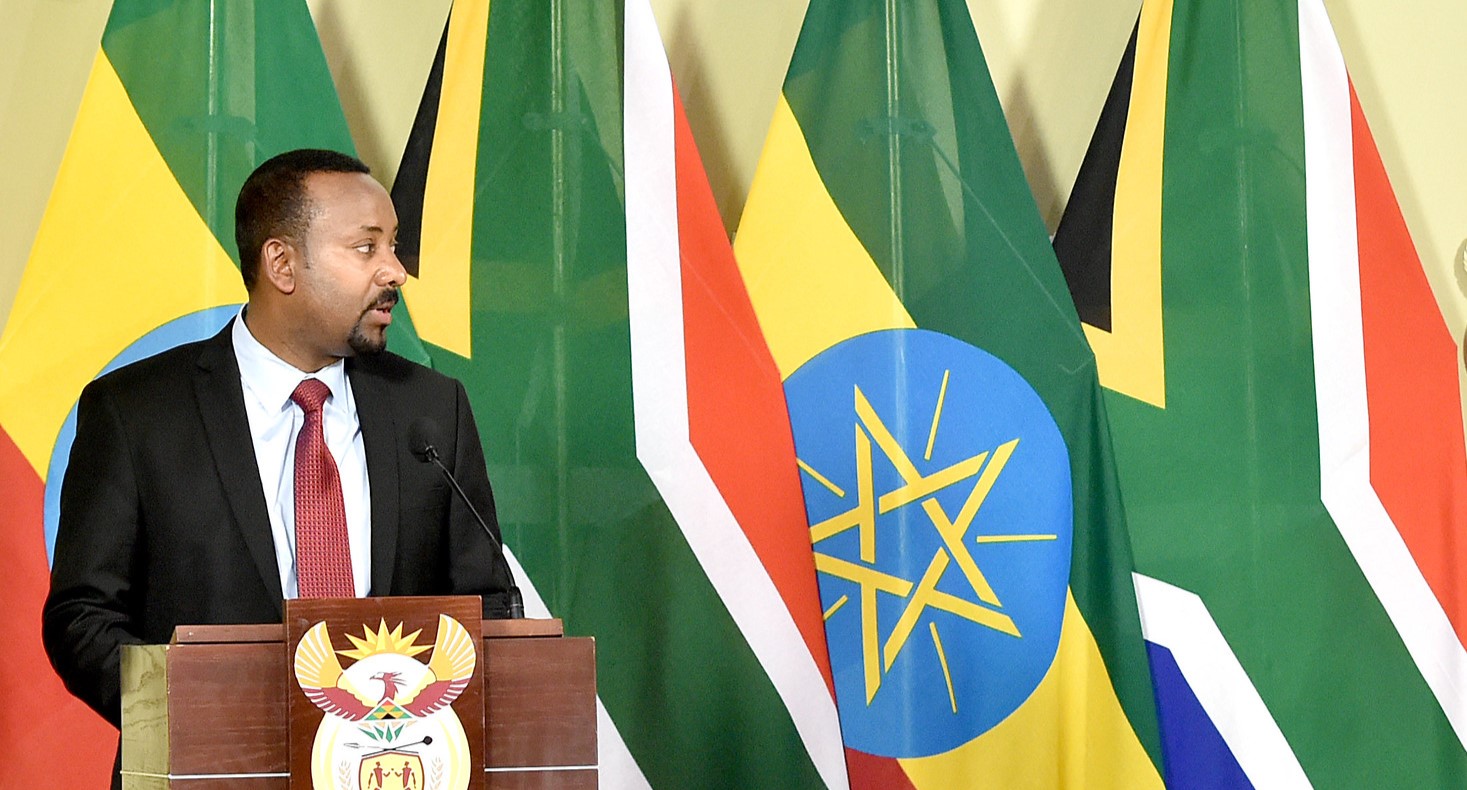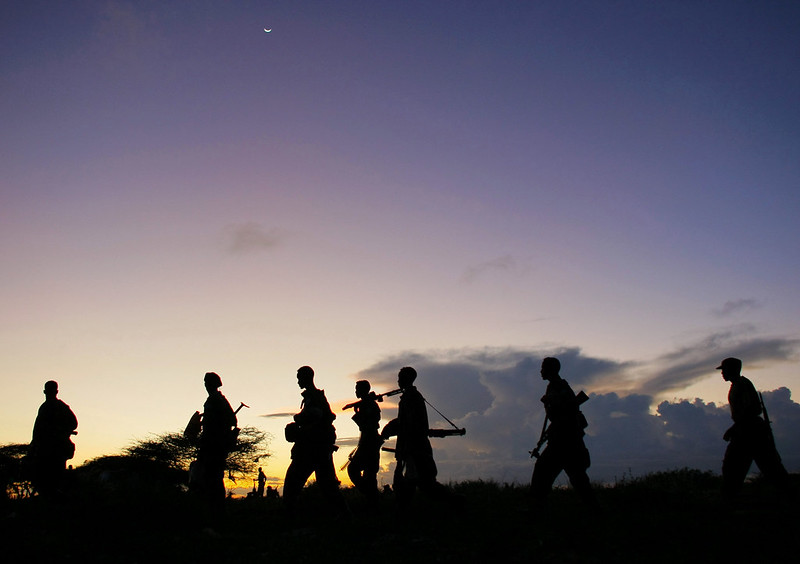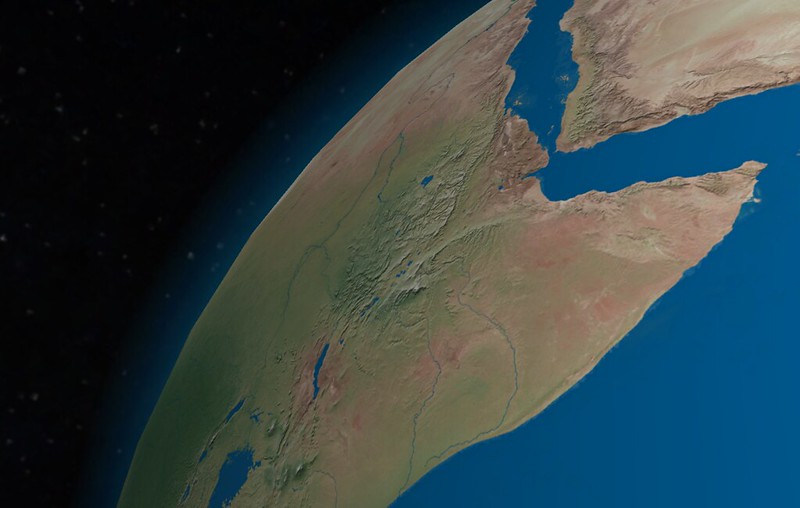The Grand Ethiopian Renaissance Dam has been under construction since 2011 and has had serious political implications for Ethiopia’s relations with Sudan and Egypt, write Yohannes Woldemariam and Genevieve Donnellon-May.
Ethiopia has been negotiating the fate of the Grand Ethiopian Renaissance Dam (GERD) with Egypt and Sudan for over a decade. The most recent phase ended, like all previous attempts, with no agreement. Following the breakdown in negotiations, Egypt said it would reserve the right to “defend its national security” due to the importance of the Nile.
The hydroelectric dam – over a mile long and 145 metres high – could generate more than 6,000 megawatts. That would double Ethiopia’s production of electricity, to which only half the country’s population of 120 million currently has access. In theory, it is designed to supply electricity not only to Ethiopia but Sudan, Egypt, and the region. Yet Egypt is concerned the project will compromise its water supply on which 90 per cent of Egyptians depend on. The international nature of the river basin means that extraction or retention of water in one part affects use in another.
As things currently stand, the ambition does not match reality. Ethiopia’s grid is nowhere developed enough to absorb the extra capacity. Transmission and distribution networks are non-existent in most of the country, and there is a lack of adequate high-voltage links to its neighbours to support electricity exports. Beyond the technical components, the project would require cooperation and integration between the neighbouring economies. The current situation is anything but cooperative.
The groundwork of the GERD
Ethiopia and Egypt have been waging a fierce diplomatic campaign over the GERD project. Ethiopia has long distrusted Egyptian hegemony over the Nile which was established through colonial treaties designed to monopolise a lion’s share of the river’s flow. Little was done to challenge it until 2011 when it initiated fundraising for the dam’s construction through ‘local taxes, donations and government bonds’. The late Prime Minister of Ethiopia rallied the support of six Nile states through the Nile Basin Initiative (NBI) in 1999, which created a basin-wide institution that ended Egyptian hegemony.
Plans for a dam have been in the offing since 1964 when the US Bureau of Reclamation completed a feasibility study on the Ethiopian Blue Nile and proposed four major dams, none of which ended up being built. In March 2011, the late Meles Zenawi announced the beginning of construction on the GERD at a time when Egypt was dealing with the chaos of the Arab Spring. When asked about Egyptian threats of war in 2010, he replied:
‘I am not worried that the Egyptians will suddenly invade Ethiopia, nobody who has tried that has lived to tell the story. I don’t think the Egyptians will be any different and I think they know that.’
The GERD subsequently became a symbol of nationalism in Ethiopia. Even those who were critical of the project when Meles was alive and in power began to see it as their own project after his death and to rally Ethiopians.
Potential for a proxy war
Egypt is wooing its neighbours and has successfully secured a military base in Somalia. Ethiopia just concluded a memorandum of understanding with Somaliland (a non-state actor) to give it port and naval access in the Gulf of Aden in violation of the African charter of 1964 that sanctified colonial boundaries, plunging the region into a deep diplomatic crisis. Somaliland is still officially part of the Republic of Somalia, although the central government in Mogadishu has little control over what happens in Somaliland since 1991. Ethiopia’s reported offer of recognition for Somaliland in exchange for a lease over 20 kilometres of Somaliland’s coastline is adding fuel to an already divided region. In the ongoing Sudanese civil war, Egypt, Eritrea, South Sudan and Somalia support General Al Burhan while Ethiopia and the UAE are backing his rival Hemedti.
Egypt for the most part can also count on Arab support. It has successfully lobbied through the Arab League for a statement asking Ethiopia to delay filling the reservoir created by the GERD. Ethiopia has ignored these pressures and continued with the dam’s construction.
Ethiopia feels that the filling of the dam has reached a stage where attacks to damage it will result in the flooding of Sudan. However, the initial goal of using the GERD to export power to the region may have become impractical with the growing deterioration of security in Sudan and Ethiopia. The GERD may simply be a white elephant project much like the INGA I, II, and III dams in the DRC. The GERD is being built at a time when such mega projects have been proven to be hazardous for watersheds like the Nile which is fragile, particularly in light of the growing impact of climate change. There has never been a credible environmental impact study on the dam.
The potential for international mediation
Not only can the sides not agree on an outcome, but they also don’t even agree on a method of mediation. Egypt prefers to internationalise the issue while Ethiopia prefers mediation by the African Union. Egypt and Al Burhan of Sudan want a legally binding agreement that will impact how Ethiopia fills the dam in times of drought. Ethiopia regards the proposal as unacceptable.
There is currently no clear end in sight or even a clear path to a resolution. In the coming years as the GERD becomes fully operational and the Nile waters become even more susceptible to climate change, the dispute could become even more important for both countries and the wider region.
Photo credit: Water Alternatives Photos used with permission CC BY-NC 2.0 DEED





